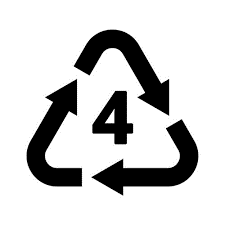EPR Registration – An Overview
Extended Producer Responsibility, or EPR, is an initiative of the Ministry of Environment, Forest and Climate Change (Government of India). It was implemented under the Plastic Waste Management (PWM) Rules, 2016. EPR registration is essential for manufacturers, producers, importers, and brand owners.
EPR aims to shift the obligation of environmental protection through the plastic product life cycle from the consumer to the producer/manufacturer. It intends to reduce the stress caused to the environment by a product from its conception to creation, designing, packaging, and marketing. It encourages take-back programs, recycling initiatives, and proper disposal of both the product and its packaging.
As per PWM guidelines, all producers, importers, and brand owners are responsible for ensuring that the processing of their plastic packaging waste passes through recycling, re-use, or end-of-life disposal (asco-processing/Waste-to-energy/Plastic-to-oil/Roadmaking/Industrial-composting).
In order to streamline the implementation of EPR, the Ministry of Environment, Forest and Climate Change, Government of India, in its fourth Amendment to the Plastic Waste Management Rules, dated February 16, 2022, notified ‘Guidelines on Extended Producer Responsibility for Plastic Packaging’ in the Schedule II of the Rules. According to the guidelines of this notification, Producers, Importers and Brand Owners (PIBOs) are now mandated for EPR registration through the online portal formed by the Central Pollution Control Board (CPCB).
What is EPR Authorization?
Producers, importers, and brand owners (PIBOs) of product segments such as electronic and electrical are mandated by the government of India to apply for EPR authorization to conduct their business in India.
PIBOs must apply for registration on the official portal of the Central Pollution Control Board (CPCB). Some of the products covered under EPR compliance include:
- Electrical and electronic equipment (EEE) – Covered under the E-Waste (Management) Rules, 2016.
- Plastic products – Covered under the Plastic Waste Management Rules, 2016.
- Batteries and accumulators – Covered under the Batteries (Management and Handling) Rules, 2001.
- Packaging materials – Covered under the Plastic Waste Management Rules, 2016, and other applicable regulations.
What are the Rules/Acts/Regulations that Guide the EPR Business in India?
Some of the applicable rules, acts, and regulations that guide the EPR business legal framework in India are as follows:
How Many Types of EPR Registrations are Available in India?
As per the Central Pollution Control Board (CPCB), EPR has been further classified in accordance with the waste type into the following categories:
What are the Benefits of EPR Registration Online in India?
EPR registration offers a wide range of benefits for manufacturers, consumers, importers, and the environment. The benefits of EPR Registration online are:
- Effective Waste Management- EPR registration plays a pivotal role in effective waste management through various processes and compliance measures.
- Cost Management – Optimised waste management practices lead to reduced expenditures and better cost management at the organisational level.
- Goodwill & Brand Imaging – EPR authorization works as a goodwill factor for the organisation as customers today prefer to associate with an environmentally friendly and socially responsible organisation.
- Environment Friendly – Following EPR compliances helps contain pollution in the environment and makes it a better place.
- Benefits to the Taxpayer- EPR registration offers tax relief to taxpayers as the burden of managing waste is not passed on to them; instead, organisations have to bear the cost of waste management.
Are the EPR Guidelines for Importers the same as those for local manufacturers?
Importers, too, are required to obtain EPR Registration to conduct their business in India. However, in accordance with guidelines, only importers who meet the following criteria can apply for EPR registration:
Importers must obtain EPR Authorization from CPCB if operating in more than 2-states and Union Territories (UTs). If operations are limited to 1 or 2 states or UTs, they are required to obtain EPR certification from respective SPCBs or PCCs online.
What is the Importance of EPR Registration Certificate for Importers?
EPR registration certificate is important for importers for the following reasons:
Online EPR Registration – Importers Guide
|
EPR Registration for Importers |
Details |
|
Time taken to obtain EPR Certificate (Importer of Plastic Goods) |
25 – 30 Working Days |
|
EPR Registration (Govt) Fees (Importer) |
Plastic Waste Generation (TPA): 1. Less than 1000 TPA, Registration Fees = INR 10,000 2. Between 1000-10,000 TPA, Registration Fees = INR 20,000 3. More than 10,000 TPA, Registration Fees = INR 50,000 |
|
Renewal & Validity |
1. New Registration validity is 1 year 2. Renewed EPR Certification validity is 3 years |
|
Renewal Fees for Online EPR certification |
Same as Certification Fees |
|
Fees (Govt) for Filing EPR Annual Returns |
25% of EPR Application Fees |
|
Mode of Application for EPR Authorization |
Online Application |
Documents Required for EPR Registration in India
In order to obtain an EPR registration certificate, some relevant documents need to be shared. Here is a checklist of documents required for EPR registration in India:
- Application form, duly signed
- Detailed EPR Plan to achieve targets set by CPCB or SPCB
- Legal documents authorising the manufacture/import/sale or distribution of EEE or plastic packaging
- Agreement or MoU with entities for collection and management of e-waste or plastic waste produced at the facility
- Agreement or MoU for authorised transportation of e-waste or plastic waste as per Hazardous & Other Wastes (Management & Transboundary Movement) Rules, 2016
- Agreement or MoU with authorised labs for testing e-waste or plastic waste as per RoHS or other compliances prescribed by CPCB or SPCB
- Agreement or MoU with CPCB or SPCB or UT Administration for implementation of E-Waste (Management) Rules, 2016 or the Plastic Waste Management Rules, 2016
- Business address with mandatory documents
- Contact details
- Certificate of Incorporation
- Import Export (IE) Code Verification
- Awareness Initiative details
- Budget allocated for Extended Producer Responsibility
- Estimates for E-Waste Management
- Recycler Information
- BIS License copy (if applicable)
- Authorised Person’s details & documents
- Product details
- PAN Card copy
- Certificates issued by Municipality/Local Authorities
- Any other documents deemed important by the CPCB, SPCB or other regulatory authorities
What is the EPR Registration Process in India?
Understanding the complexities of the EPR registration process is important. The process to apply for EPR authorization in India is as follows:
- All manufacturers who want to obtain EPR Authorization in India should file through Form-1 of E-Waste (M) Rules, 2016
- The applicant should not leave the form incomplete
- The applicant must attach the required documents along with the form
- The applicant must submit the duly filled form to the Member Secretary (CPCB)
- The applicant must fulfil all the legal requirements regarding E-Waste as mentioned under Section 2.1.1 to 2.1.7
- The applicant must await the review of the application submitted to the CPCB
- The applicant must provide additional information (if applicable) to CPCB on request
- The applicant must wait for document verification and issuance of certificate by CPCB thereafter.
Cancellation/Validity/Renewal Guidelines for EPR Registration
There are certain cancellation, validity, or renewal guidelines for EPR registration. Get a glimpse of the significant guidelines in brief-
1- Cancellation
CPCB or SPCB can cancel the EPR registration for the following reasons:
- For violating the terms and conditions
- For furnishing false or misleading information
- For sharing false documents, hiding facts or wilful omission of information
- For failing to achieve EPR targets
- For failing to comply with EPR regulations as per E-Waste (Management) Rules, 2016 or the Plastic Waste Management Rules, 2016
- After hearing the applicants’ pleas and duly concluding & recording the violations, mentioned above that took place on the ground.
If the violations are proved, the CPCB or the SPCBs may impose a penalty or initiate any other legal action against the applicants that they deem fit.
2- Validity
The validity of EPR registration granted by CPCB or SPCB:
- The validity for plastic packaging is 1 year from the date of issuance or as specified
- The validity for EEE is 5 years from the date of issuance or as specified
- The validity is subject to multiple clauses such as satisfactory performance, compliance with the EPR plan, collection methodology, documentation processes, and verification medium
3- Renewal
The renewal process for EPR registration by CPCB or SPCB:
- The applicant may apply for the renewal three months ahead of the expiry of the existing validity
- The applicant may duly submit an application for the renewal with required documents
- The applicant must duly pay the renewal/processing fees
- Renewal is subject to compliance with the EPR guidelines as per the E-Waste (Management) Rules, 2016 or the Plastic Waste Management Rules, 2016
- Renewal is subject to review of the EPR compliance by the authorised body
- Renewal validity for plastic packaging is 1 year
- Renewal validity for EEE is 5 years
How many Categories of Plastic are characterised by CPCB?
As per the guidelines of CPCB, plastics are categorized as:
- Recyclable Plastics (Thermoplastics) – This category includes plastics such as PET, HDPE, LDPE, PP, PVS, and PS, amongst others.
- Non-Recyclable Plastics (Thermoset & Others) – This category of plastics includes Multilayer and Laminated Plastics, PUF, Bakelite, Polycarbonate, Melamine, Nylon etc.
As per BIS Codification, as notified in Rule 8 (b) of Plastic Waste (Management and Handling) (Amendment) Rules, 2011, plastics are categorized as:
|
Symbol |
Short Name |
Scientific Name |
Used in |
 |
PET |
Polyethylene Terephthalate |
Water bottles, PET bottles etc. |
 |
HDPE |
High Density Polyethylene |
Milk, Detergent bags, Carry bags, Containers etc. |
 |
PVC |
Polyvinyl Chloride |
Cables, Pipes, Floorings etc. |
 |
LDPE |
Low Density Polyethylene |
Carry bags, Films etc. |
 |
PP |
Polypropylene |
Medicine bottles, Cereal liners, Packaging Films etc. |
 |
PS |
Polystyrene |
Foam Packaging, Tea cups, Ice Cream cups etc. |
 |
O |
Others |
Thermoset Plastic, Multilayer, Laminated Plastics, PUF, Bakelite, Polycarbonate, Melamine, Nylon etc. |
Note – Applicants who intend to use plastic waste in road construction must furnish a self-declaration certificate in accordance with a format set by the Central Pollution Control Board (CPCB).
Mandatory Compliance for EPR Registration in India
The mandatory compliance required for EPR Registration in India are:
- Compliance with all terms and conditions as per E-Waste (Management) Rules, 2016, Plastic Waste Management Rules, 2016 and CPCB/SPCB guidelines
- Compliance with laws and regulations related to e-waste or plastic waste management
- Regular monitoring of e-waste or plastic waste guidelines
- Annual verification or validation of e-waste or plastic waste performance and compliance
- Display of EPR registration and verification/validation report or e-waste/plastic waste statement/performance report/ compliance report/document highlighting the performance & compliance of e-waste/plastic waste management
- Cooperation with inspection/verification/audit/investigation/inquiry/enforcement/ adjudication/litigation/arbitration/mediation/conciliation/other process or action by CPCB/ SPCBs or regulatory authority/court/tribunal
EPR Registration Fees
Corpbiz is a professional team of experts that assists businesses in staying environmentally compliant with EPR registration. Our EPR registration consultants are experts in their field and will effortlessly guide you in obtaining and managing your e-waste and plastic waste worries. Our EPR Registration consultation fees start from INR 10,000 to 20,000, depending on various factors, including government charges.
How long does it take to obtain EPR Registration?
After submitting and validating the duly filled form, it takes up to 30 working days to obtain EPR registration.
Why Corpbiz?
- Assistance from professional consultants
- Assistance in the documentation process
- Timely filing of the application
- Industry Knowledge
- Expertise
- Customer Centric Approach
- Best Price
- Relationship Manager
- Google Verified
Frequently Asked Questions
EPR aims to shift the obligation of environment protection through the plastic product life cycle from the consumer to the producer/manufacturer. It intends to reduce the stress caused to the environment by a product from its conception to creation, designing, packaging, and marketing. It encourages take-back programs, recycling initiatives, and proper disposal of both the product and its packaging.
Any individuals with specific responsibilities or roles can go ahead with the registration process to obtain enhanced access, personalised to their needs.
Yes, users can update their registration details as and when needed. However, they must ensure the details furnished are accurate.
At the time of EPR registration, detailed information relevant to creating a user profile must be furnished.
Yes, organizations have the flexibility to register more than one user (in a batch) to streamline the process.
It usually takes up to 30 working days to complete the end-to-end process of EPR Registration.
Yes. There is a provision for users (after registration) to access the training materials that, in turn, help them navigate the benefits of enhanced accesses and systems efficiently.
In some cases, EPR registrations may be transferable, facilitating seamless transitions while shifting responsibilities and roles.
Yes. It is possible to retrieve your login credentials in case you forget your login details. However, you will have to follow the secure processes to recover or reset your password for further usage.
Over 40 countries worldwide have EPR compliances in place, including India, France, Germany, Japan, Malaysia, Thailand, and Indonesia.


























